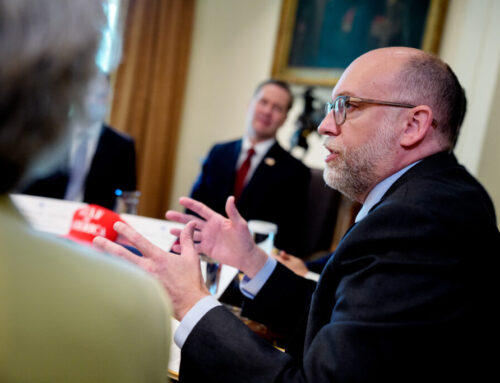Arizona governor vetoes state bitcoin reserve
May 5, 2025
Arizona Gov. Katie Hobbs on Friday vetoed legislation that would have placed as much as 10% of the state’s funds in cryptocurrency.
In a letter Friday to Warren Petersen, the Republican president of the state’s senate, Hobbs dismissed the idea.
“The Arizona State Retirement System is one of the strongest in the nation because it makes sound and informed investments,” wrote Hobbs, a Democrat. “Arizonans’ retirement funds are not the place for the state to try untested investments like virtual currencу.”
The legislation, sponsored by Sen. Wendy Rogers and Rep. Jeff Weninger, both Republicans, would have created the first state-run “strategic” bitcoin reserve. The idea has grown popular among some Republicans since President Donald Trump last March ordered creation of a federal Strategic Bitcoin Reserve.
After the Arizona House’s vote last week, Weninger said the legislation would not require creation of such a reserve, but give the state treasurer the option to invest in “probably mainly bitcoin, but other things, as well.” He counted roughly 15 other states that are considering similar legislation.
Hobbs’ rejection of investing public funds into bitcoin aligns with the reputation of most state governments to be conservative in their administration of public services and taxpayer funds. Bitcoin is roughly three times more volatile than the commodities asset class, and more than 10 times more volatile than the total bond market, according to one analysis.
Some local governments, including New York and Miami, have experimented not with cryptocurrency reserves, but creating their own tokens as a means of generating supplementary income. The cryptocurrency exchange OKcoin in 2023 suspended trading of the so-called CityCoins, citing their “limited liquidity.”
Some governors and mayors have also in recent years accepted their own paychecks in bitcoin — or immediately converted the U.S. dollars from their paychecks to buy cryptocurrency — usually a publicity stunt designed to court cryptocurrency companies that might settle in their states or cities.
Search
RECENT PRESS RELEASES
Related Post




